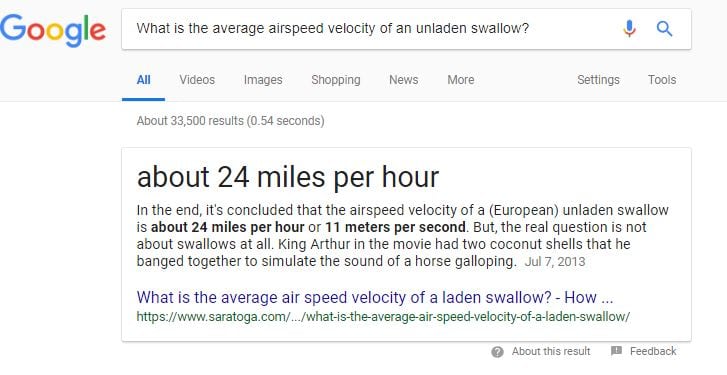
“Okay, Google” – “Alexa” – These are two new entities in a lot of homes now. We tell them to add things to a shopping list, tell us a joke, or like me, get quick facts when homeschooling. But voice search is the newest thing and even if we’ve spent years perfecting our SEO on paper, it’s all going to voice now. I ask Siri to give me directions or tell me where the closest gas station is, ask Cortana about the best sushi in the area or Google how to get to downtown Seattle.
So how on earth are we supposed to optimize for this?
Did you know that 41% of adults and 55% of teens use voice search DAILY? I don’t know about you, but that tells me I better know how to optimize for voice search because if I’m not getting those 41%, the 55% of teens will be homebuying age soon enough and I’ll miss out on a huge demographic. 20% of all Google mobile searches are VOICE searches! Just since 2008, voice search has grown 35 times! This is a huge figure we cannot ignore. And we’re not going back. It’s predicted that by 2020, 50% of all searches will be voice searches. (SearchEngineLand.com)
Voice totally changes the way you search. Think about it… typing a question is tedious and you might shorten it, while speaking it is practically effortless and you usually speak the full question. Voice searches are longer and more conversational. For instance, you might type ‘Chicken Parmesan recipe’ but you might say “Hey Google, how do I make Chicken Parmesan at home?”
The location changes SEO too. People are searching “______ near me” 150% more than they were just 2 years ago. That’s an important phrase when people are asking “Where is the closest mortgage officer?” or “Contact a real estate agent near me”. This means that Google is changing from a search engine to an answer engine. Are you answering their questions?
A little about “Near Me”
This is a Google search that a lot of people are using now and I think it works better for brick and mortar shops than a real estate agent or business that goes all over, but the idea still should be considered. If I’m in downtown Seattle looking for sushi near Safeco Field, that’s what’s going to come up. Are you the sushi shop near me? Are you the mortgage broker near me? Are you the home inspector near me?
This also means people are getting those answers directly from Google! Not clicking through to an organic or even a PPC listing. (This is why your Google My Business listing needs to be AMAZING! They’re seeing it right on the results page and may never actually click on the website.)
So how do we optimize for voice search?
Start with natural language keywords. Instead of searching and using keywords like “Sacramento Cash Offer House” Use key phrases that fit with natural speaking like “How can I sell my house for fast cash?” And let Google geolocate the searcher to the right result. But don’t get too lengthy. Try and keep your key phrases to around 5 words. Try adding these phrases in your content in a variety of variations.
“If Google finds a keyword anywhere in a piece of content, they’ll use it as a voice search result”
Use question words:
- What
- Why
- Total
- Where
- When
- How
Who (which is the top used keyword up 132% over the last year) (SearchEngineWatch.com)
I’ve talked about this site before but it’s perfect for this research. Answer the Public is a great free forum to see what keywords people are using and how to find a phrase that works for your content. BuzzSumo is another great question analyzer to find good phrases to use.
Answer those questions in a natural way as clear and precise as possible to get Google to match your content to the answer.
Keep your answers to about 30 words or less
Google will tend to give answers that are around 30 words long. So whatever you answer, make it about 30 words or less. I didn’t say a blog post that’s 30 words long, just the answer to the question. And it should be the first paragraph that really answers the question. Of course, the next 300-3000 words can expand on that but your answers should be no more than 30 words long.
This is why FAQ pages are excellent for voice search. They literally answer most questions people have about your business, product or service.
Fun Fact: The average word count of a first page Google result is approximately 2300 words. Yep… Keep writing. (Okay, maybe that wasn’t so fun)
Featured Snippets
Featured snippets are Google’s a block at the top of the search results page that includes a summary of the answer extracted from a webpage. (25 words)
It will also be the answer given by Google, Cortana, Siri, and Alexa. And it’s the only answer it will give so make sure it’s a good one.

(yes, I went a little Monty Python there)
Long Tail Keywords Don’t Have to Be in the Title or URL
To optimize for voice search, embed long tail key phrases into content in a variety of ways naturally throughout the content. Don’t create 1000 pages with 1000 voice search answers. Two or Three or even more answers could reside in one post when done correctly. Google will search and pull the phrase or paragraph that matches the content. This means that a single page could rank for a lot of different voice search queries.
I know that 2300 word count scared you, but don’t let it. Maybe you have a lot to say or maybe you can come back and add to content when you have more information. Keep the page evolving. Google loves it! And as you write and add content, remember the 30-word rule for answering questions. You might just build the authority your site needs to be that end-all, #1 answer.
Don’t worry about “stop” words.
Oh, those nasty “stop words” that WordPress SEO plugins tell you not to use. Well, guess what? Voice search uses them and it’s okay!
Don’t use fancy words and jargon – most people comprehend reading at and 8th or 9th-grade reading level – and trust me, I’m homeschooling a 9th grader and even I don’t understand some of his text! Make it simple, easy to replicate and natural.
So is that it? Do I need to do anything else for voice search?
Well, yes. Like I’ve said before, SEO is hundreds of techniques and procedures that help a website rank and gain traffic. Voice search keywords are just one of those. Site speed, domain authority, backlinks, and page authority all still matter. Google isn’t going to pull a search result from a brand new website with no authority (and if they do, it won’t be consistent) Build up your authority by continuing to build out your Google My Business, add more content, share the content on social media, get backlinks from guest posts and high quality sites and make sure your site is mobile compliant, secure, and loads fast.
There’s a lot – A LOT – more to this topic but I hope I’ve given you somewhere to start. Start answering the public with your own question and answer session and see how that affects your business. Voice search is where it’s at. We have to adapt otherwise we’ll be left behind.
